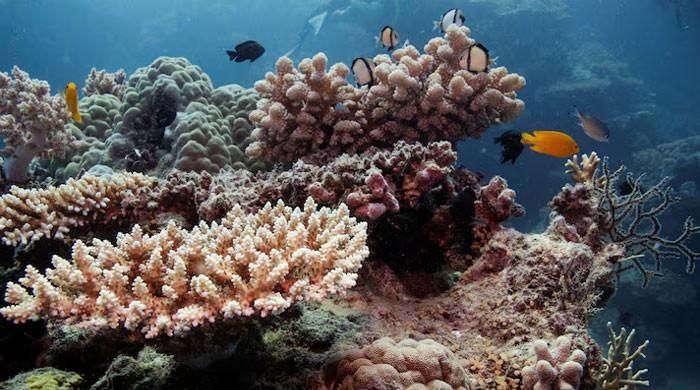Australia's Great Barrier Reef, the world's largest reef, has come under threat as water temperatures in and around the reef reached their highest level in 400 years over the past decade.
That's according to a study published Thursday by researchers that puts the effects of man-made climate change into historical context. Reuters reported.
The reef, the world's largest living ecosystem, stretches for some 2,400 kilometres off the coast of the northern state of Queensland.
A group of scientists from universities across Australia drilled coral cores and analysed the samples to measure summer ocean temperatures going back to 1618.
Combined with data from ships and satellites dating back about 100 years, the results show that ocean temperatures that had remained stable for hundreds of years began to rise from 1900 onwards as a result of human influence, the research concluded.
Between 1960 and 2024, the study's authors observed an average annual warming from January to March of 0.12°C per decade.
Since 2016, the reef has experienced five summers of mass coral bleaching, when large sections of the reef turn white due to thermal stress, putting them at increased risk of death.
These summers occurred during five of the six warmest years of the past four centuries, the study showed.
“The world is losing one of its icons,” said Benjamin Henley, an academic at the University of Melbourne and one of the study's co-authors.
“I think it's a real tragedy. It's hard to understand how something like this could happen in our time, so it's very, very sad.”
The latest temperature data, from January to March this year, was the highest on record and far above any other year, Henley said.
Coral reefs protect coastlines from erosion, are home to thousands of species of fish and are an important source of tourism revenue in many countries.
At least 54 countries and regions have experienced mass bleaching of their reefs since February 2023 as climate change warms ocean surface waters, the US National Oceanic and Atmospheric Administration (NOAA) said.












